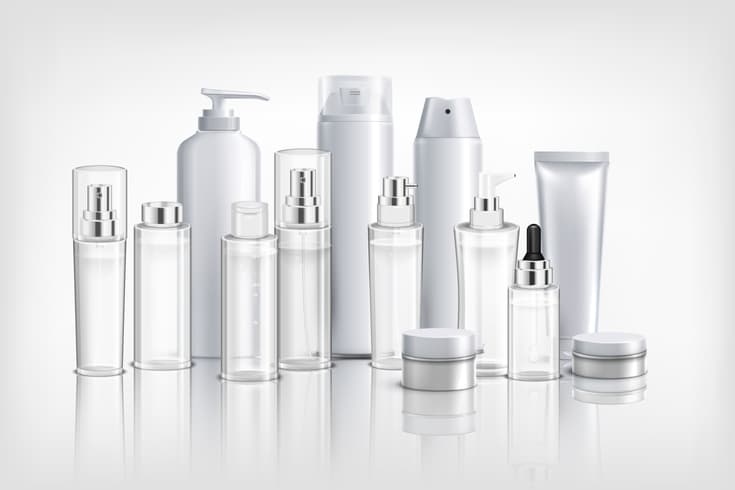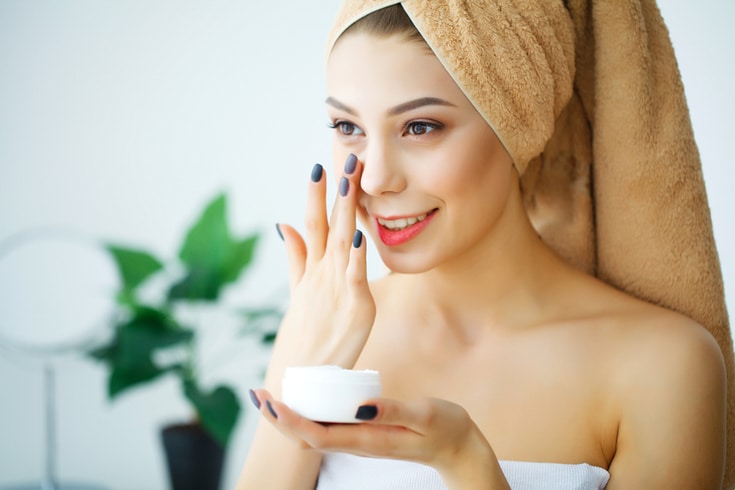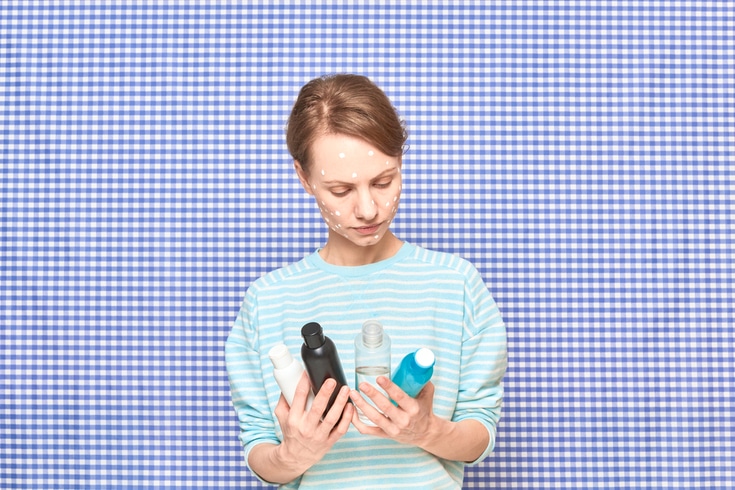Points to Note Regarding Advertising Expressions for Cosmetics and Health Foods

In the operation of women’s media, there may be instances where specific cosmetics or health foods are introduced within articles.
While it is necessary to provide information such as the features and reasons for recommending each product, care must be taken in the description as it may contravene the law depending on the content.
There are several laws that regulate advertisements in the beauty and medical fields, with the Japanese Pharmaceutical and Medical Device Act and the Japanese Act against Unjustifiable Premiums and Misleading Representations being representative examples.
In this article, we will explain in detail what points need to be taken into account when expressing advertisements for cosmetics and health foods.
Credibility of Official Websites
When introducing cosmetics or health foods, it is common to refer to the product’s official website for writing. While it is generally considered acceptable if the content is provided by the seller, there may be instances where the content is illegal or inappropriate.
Pharmaceuticals and quasi-drugs are sold after receiving manufacturing and sales permits. The PMDA (Japanese Pharmaceuticals and Medical Devices Agency) checks the effectiveness and safety of the product, while the Ministry of Health, Labor and Welfare checks the production methods and management systems of the product. The content of the official website is not included in this review, and there is no certification from the government. Therefore, there is no guarantee for the credibility of the content.
So, where can we find the criteria for judging advertising expressions? Detailed regulations for advertising expressions are stipulated in the Japanese Pharmaceuticals and Medical Devices Act.
Rules under the Japanese Pharmaceutical Affairs Law

Typical skincare products are classified under the Japanese Pharmaceutical Affairs Law as either ‘pharmaceuticals’, ‘quasi-drugs’, or ‘cosmetics’.
- Pharmaceuticals: Products that are recognized by the Ministry of Health, Labour and Welfare for use in the treatment or prevention of diseases.
- Quasi-drugs: Products that are not actively used for treatment, but are used for beauty purposes such as preventing bad breath, body odor, or hair loss.
- Cosmetics: Products used to clean, beautify, enhance attractiveness, and promote health of the human body.
In terms of potency, the order is:
Pharmaceuticals > Quasi-drugs > Cosmetics
Because of their strong effects, the use of pharmaceuticals often requires guidance and advice from professionals such as doctors and pharmacists.
Prohibition of expressions related to disease treatment and prevention effects
Unlike pharmaceuticals, for quasi-drugs and cosmetics, the display and advertisement of disease treatment and prevention effects are prohibited under the Japanese Pharmaceutical Affairs Law. Examples of illegal expressions include:
- “This supplement is effective against cancer.”
- “If you apply this cream to the affected area, you can prevent skin diseases.”
- “This eye drop is effective in treating glaucoma.”
Using direct expressions that indicate effects on diseases falls under the regulation of the Japanese Pharmaceutical Affairs Law as “false and exaggerated advertising“, and you will be subject to severe penalties such as imprisonment for up to 2 years, a fine of up to 2 million yen, or both.
Prohibition of expressions aimed at general enhancement/improvement of functions
Furthermore, expressions aimed at the general enhancement/improvement of bodily functions are also prohibited. In other words, expressions that suggest an improvement in bodily functions. For example, expressions like the followings are prohibited:
- “Drinking this nutritional drink will immediately relieve fatigue.”
- “Taking this herbal medicine will restore your vitality.”
- “Applying this medicated cream can prevent aging.”
Other expressions such as “enhancing physical strength”, “preventing aging”, “improving academic ability”, “boosting metabolism”, “purifying blood”, “improving constitution to be less susceptible to colds”, “improving liver function”, “activating cells”, etc. are also prohibited.
Regulations under the Japanese Pharmaceutical Affairs Law
The regulations under the Japanese Pharmaceutical Affairs Law include “product advertisements through TV, radio, newspapers, magazines, the Internet, etc.” and mentions about media. Also, word-of-mouth, where you convey your own usage experience or comments from users about products or services, is considered a type of advertisement and requires caution.
Both cosmetics and health foods are subject to the regulations of the Japanese Pharmaceutical Affairs Law, and care must be taken to ensure that advertising expressions do not violate the law.
Standards for Cosmetic Advertising

Cosmetics can be divided into the following two categories:
- Medicated cosmetics that fall under the category of quasi-drugs
- Cosmetics
Definition of Medicated Cosmetics and Acceptable Expressions
Medicated cosmetics are those that contain active ingredients defined by the Ministry of Health, Labour and Welfare (MHLW) and are labeled as quasi-drugs. They are also registered in the database of the Japan Pharmaceutical Manufacturers Association.
The expressions allowed for medicated cosmetics are listed on the following page of the MHLW:
Prevent skin irritation, irritation, heat rash, frostbite, cracks, chapped skin, acne, oily skin, prevent razor burn, prevent spots and freckles caused by sunburn, heat after sunburn/snowburn, tighten the skin, cleanse the skin, condition the skin, keep the skin healthy, moisturize the skin, protect the skin, prevent skin dryness
https://www.mhlw.go.jp/bunya/iyakuhin/ippanyou/pdf/shikent.pdf
For example, for “lotion, cream, emulsion, cosmetic oil, pack”, the above expressions are allowed.
Definition of Cosmetics and Acceptable Expressions
In the case of cosmetics, unlike medicated cosmetics, no national manufacturing permission is required. They also do not fall under the category of quasi-drugs, so please note that the expressions allowed for medicated cosmetics cannot be used.
The expressions allowed for cosmetics are, for example, as follows:
(1) Normalize the scalp and hair.
(2) Suppress unpleasant odors of hair and scalp with fragrance.
(3) Keep the scalp and hair healthy
https://www.mhlw.go.jp/file/06-Seisakujouhou-11120000-Iyakushokuhinkyoku/kesyouhin_hanni_20111.pdf
The above MHLW page lists 56 expressions that can be described as the efficacy and effects of cosmetics. Please note that no expressions other than these 56 can be used for cosmetics.
Criteria for Ingredient Labeling in Cosmetics
When introducing cosmetics, there may be cases where the ingredients used are also presented. Regarding ingredient labeling, the Japan Cosmetic Industry Association publishes a List of Ingredient Names for Cosmetics.
How to Verify the Content of an Official Website

There are ways to verify whether the content listed on an official website is accurate. The key point is whether it adheres to the rules set by public authorities. In the case of health foods, you can check on the Consumer Affairs Agency’s website.
The rules to be followed vary depending on the classification of the food, such as Foods with Function Claims, Foods for Specified Health Uses, and Foods with Nutrient Function Claims. Let’s take a look at them one by one.
Case of Foods with Function Claims
For Foods with Function Claims, you can refer to the following page of the Consumer Affairs Agency. A database called “Search for Foods with Function Claims” is available.
For example, if you search for “Hyalomoisture 240” by product name, you will find the following in the section labeled “Functionality to be Displayed”.
This product contains Hyaluronic Acid Na. It has been reported that Hyaluronic Acid Na helps retain skin moisture and alleviate dryness.
https://www.caa.go.jp/policies/policy/food_labeling/foods_with_function_claims/
Foods with Function Claims are allowed to be listed if the business operator reports to the government, but they are not necessarily approved by the Consumer Affairs Agency or the Ministry of Health, Labour and Welfare. However, since they are displayed based on scientific evidence and under the responsibility of the business operator, they are highly credible. Therefore, there is little risk of them being considered exaggerated advertising even if they are used on an official website.
Case of Foods for Specified Health Uses
For Foods for Specified Health Uses, please refer to the following page of the Consumer Affairs Agency.
For example, in the case of Meiji Co., Ltd.’s “Meiji Bulgaria Yogurt CaLB81”, the following is stated.
With the action of lactic acid bacteria, it maintains a good balance of intestinal bacteria and keeps your stomach in good condition.
https://www.caa.go.jp/policies/policy/food_labeling/health_promotion/index.html#m02
Since this content is displayed with the approval of the Consumer Affairs Agency after being reviewed by the government, there is no problem with it being posted.
Case of Foods with Nutrient Function Claims
For Foods with Nutrient Function Claims, you can display the function of the nutrient components for which standards have been set. Please refer to the following page of the Consumer Affairs Agency.
For example, in the case of the ingredient zinc, the following is stated.
Zinc is a nutrient necessary to maintain a normal sense of taste. Zinc is a nutrient that helps maintain the health of the skin and mucous membranes. Zinc is a nutrient that contributes to the metabolism of proteins and nucleic acids and helps maintain health.
https://www.caa.go.jp/policies/policy/food_labeling/health_promotion/pdf/food_labeling_cms206_20200401_01.pdf
If the expression listed here is used, there is almost no risk of violating the Act against Unjustifiable Premiums and Misleading Representations or the Pharmaceutical and Medical Device Act.
We have introduced the standards for advertising displays for Foods with Function Claims, Foods for Specified Health Uses, and Foods with Nutrient Function Claims. All of them are listed on the Consumer Affairs Agency’s website, and the possibility of illegal display is low.
However, if you want to slightly change the expression when listing it on your own media, you need to be careful.
Summary: Consult Lawyers for Advertising Cosmetics and Healthy Foods to Avoid Contravening the Japanese Pharmaceutical Affairs Law
When introducing cosmetics and health foods in the media, it is important to be aware of the regulations of laws such as the Japanese Pharmaceuticals and Medical Devices Act. Expressions related to the treatment or prevention of diseases, or those aimed at generally enhancing or promoting functions, may be considered illegal.
For non-pharmaceutical cosmetics, Foods with Function Claims, Foods for Specified Health Uses, and Nutrient Function Foods, the standards deemed acceptable for description are published on the websites of the Consumer Affairs Agency and the Ministry of Health, Labor and Welfare. Please ensure to comply with these standards.
Making judgments about such advertising expressions can be difficult, and it is recommended to consult with a lawyer who has extensive knowledge and experience.
Category: General Corporate





















